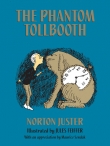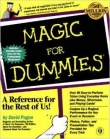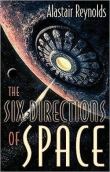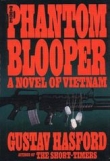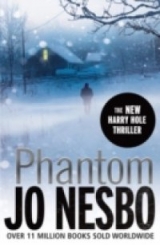
Текст книги "Phantom"
Автор книги: Jo Nesbo
Соавторы: Jo Nesbo,Jo Nesbo
Жанр:
Триллеры
сообщить о нарушении
Текущая страница: 24 (всего у книги 28 страниц)
39
Threeeyes stared back at Truls Berntsen. Two with light blue, booze-rinsed irises. And a round, black one, which was the muzzle of his own Steyr. The man holding the gun was lying rather than sitting in the armchair, and his long legs stretched out on the carpet. He said in a hoarse voice: ‘Tell me, Berntsen. Tell me about Dubai.’
Truls coughed twice. Bloody dry throat.
‘There was a ring at the door one night. I lifted the intercom handset, and a voice said he wanted to have a few words with me. I didn’t want to let him in at first, but then he mentioned a name and… well…’
Truls Berntsen held his jaw between thumb and middle finger.
The other man waited.
‘There was an unfortunate business I thought no one else knew about.’
‘Which was?’
‘A detainee. He needed to be taught some manners. I didn’t think anyone knew I was the one who had… taught him.’
‘Any damage?’
‘Parents wanted to sue, but the boy couldn’t point me out in the line-up. I must have damaged his optic nerve. Blessing in disguise, eh?’ Truls laughed his nervous grunted laughter, then shut up quickly. ‘And now this man was standing outside my door and he knew. Said I had a certain talent for sailing under the radar, and he was willing to pay a lot for a man like me. He spoke Norwegian, but with a bit of an accent. Sounded pretty decent. I let him in.’
‘You met Dubai?’
‘I did. He was alone. An old man in an elegant but old-fashioned suit. Waistcoat. Hat and gloves. He told me what he wanted me to do. And what he would pay. He was a careful guy. Said we wouldn’t meet face to face again, no phone calls, no emails, nothing that could be traced. And that was fine by me.’
‘So how did you organise the work?’
‘The jobs were written on a gravestone. He explained to me where it was.’
‘Where?’
‘Gamlebyen Cemetery. That was where I got the money as well.’
‘Tell me about Dubai. Who is he?’
Truls Berntsen stared into the distance. Tried to get a sense of the equation’s pluses and minuses. Of the consequences.
‘What are you waiting for, Berntsen? You said you could tell me everything about Dubai.’
‘Are you aware what I’m risking by tell-’
‘Last time I saw you, two of Dubai’s guys were trying to fill you with lead. So even without this gun pointing at you you’re already in the doghouse, Berntsen. Spit it out. Who is he?’
Harry Hole’s eyes bored into him. Saw straight through him, Truls thought. And now the hammer on the gun was moving and his equation was becoming simpler.
‘Alright, alright,’ Berntsen said, holding up his palms. ‘His name’s not Dubai. They call him that because his pushers wear football shirts advertising an airline that flies to the countries round there. Arabia.’
‘You’ve got ten seconds to tell me something I haven’t worked out for myself.’
‘Hang on, hang on, it’s coming! His name’s Rudolf Asayev. He’s Russian, his parents were intellectual dissidents and political refugees – at least that’s what he said at the trial. He’s lived in lots of countries and speaks something like seven languages. Came to Norway in the seventies and was one of the hash-trafficking pioneers, you could say. He kept a low profile, but was grassed up by one of his own people in 1980. That was when selling and importing drugs carried the same sentence as treason. So he did a long stint. After being released he moved to Sweden and switched to heroin.’
‘About the same sentence as hash but a lot better mark-up.’
‘Sure. He built up a network in Gothenburg, but after an undercover policeman was killed, he had to go underground. He came back to Oslo about two years ago.’
‘And he told you all this?’
‘No, no, I found this out on my own.’
‘Oh, yes? How? I thought the man was a phantom no one knew anything about.’
Truls Berntsen looked down at his hands. Looked up again at Harry Hole. Had to smile, almost. For this was something he had often wanted to tell someone. How he had tricked Dubai himself. But there had been no one to tell. Truls licked his lips. ‘He was sitting in the chair where you are now, with his arms on the rests.’
‘And?’
‘His shirtsleeve slipped back and a gap opened between his gloves and jacket sleeve. He had some white scars. You know, the kind you have when you remove a tattoo. And when I saw that on his wrist I thought-’
‘Prison. He was wearing gloves so as not to leave fingerprints you could check against the register afterwards.’
Truls nodded. Hole was pretty quick on the uptake, had to give him that.
‘Exactly. But after I’d agreed to the conditions he seemed a bit more relaxed. And when I went to shake hands on the deal he took off one glove. I lifted a couple of semi-decent prints from the back of my hand afterwards. The computer found a match.’
‘Rudolf Asayev. Dubai. How has he managed to keep his identity hidden for so long?’
Truls Berntsen shrugged. ‘We see it at Orgkrim all the time. There’s one thing that separates the Mr Bigs that aren’t caught from those that are. A small organisation. Very few links. Very few trusted aides. The dope kings who reckon they’re safest with an army around them are always busted. There’s always some disloyal servant, someone who wants to take over or grass to get a reduced sentence.’
‘And you only saw him once, here?’
‘There was one other time. The Watchtower. I think it was him. He saw me, turned in the doorway and left.’
‘So, it’s true then, this rumour about him flitting around town like a phantom?’
‘Who knows.’
‘What did you do at the Watchtower?’
‘Me?’
‘The police aren’t allowed to operate there.’
‘I knew a girl working there.’
‘Mm. Martine?’
‘Do you know her?’
‘Did you sit there watching her?’
Truls felt the blood rushing to his head. ‘I…’
‘Relax, Berntsen. You just eliminated yourself from inquiries.’
‘Wh-what?’
‘You’re the stalker, the guy Martine thought was an undercover officer. You were at the Watchtower when Gusto was shot, weren’t you?’
‘Stalker?’
‘Forget it and answer.’
‘Jesus, you didn’t think that I…? Why would I have wanted to snuff out Gusto Hanssen?’
‘You could have been given it as an assignment by Asayev,’ Hole said. ‘But you did have a solid, personal reason. Gusto had seen you kill a man in Alnabru. With a drill.’
Truls Berntsen considered what Hole had said. Considered it the way a policeman whose life was a constant lie, every day, every hour, has to try to distinguish bluff from truth.
‘This murder of yours also gave you a motive for killing Oleg Fauke, who was another witness. The prisoner who tried to stab Oleg-’
‘Did not work for me! You have to believe me, Hole, I had nothing to do with that. I’ve only burned evidence. I’ve never killed anyone. The Alnabru job was sheer bad luck.’
Hole tilted his head. ‘And when you came to Hotel Leon, was that not with the purpose of killing me?’
Truls gulped. This Hole guy could kill him, he bloody could. Put a bullet through his temple, wipe the prints off the gun and leave it in his hand. No sign of a break-in. Vigdis A could say she had seen him return home alone, that he looked cold. Lonely. Had reported in sick. Depressed.
‘Who were the two guys who turned up? Rudolf’s men?’
Truls nodded. ‘They got away, but I got a slug in one of them.’
‘What happened?’
Truls shrugged. ‘I suppose I know too much.’ He attempted a laugh, but it sounded like a chesty cough.
They sat still, looking at each other.
‘What are you planning to do?’ Truls asked.
‘Catch him,’ Hole said.
Catch. It was a long time since Truls had heard anyone use that word.
‘So, will he have people around him?’
‘Three or four, tops,’ Truls said. ‘Maybe just those two.’
‘Mm. Got any other hardware?’
‘Hardware?’
‘Apart from that.’ Hole nodded to the coffee table where two of the pistols and the MP5 machine gun lay loaded and ready to fire. ‘I’ll cuff you and search the flat, so you might as well show me.’
Truls Berntsen weighed the options. Then he nodded towards the bedroom.
Hole shook his head as Truls opened the wardrobe door and switched on a neon tube that cast blue light over the contents: six pistols, two large knives, a black truncheon, knuckledusters, a gas mask and a so-called riot gun, a short dumpy weapon with a cylinder in the middle holding large tear-gas cartridges. Truls had most of the police stock from the store where they reckoned on a small amount of wastage.
‘You’re out of your mind, Berntsen.’
‘Why’s that?’
Hole pointed. Truls had hammered nails into the wall and inked outlines around the weapons. Everything had its place.
‘Bullet-proof vest on a clothes hanger? Frightened it will crease?’
Truls Berntsen didn’t answer.
‘OK,’ Hole said, taking the vest. ‘Give me the riot gun, the gas mask and the ammo for the MP5 in the sitting room. And a rucksack.’
Hole followed while Truls filled the rucksack. They went back to the sitting room, where Harry picked up the MP5.
Afterwards they stood in the doorway.
‘I know what you’re thinking,’ Harry said. ‘But before you make any phone calls or try to stop me in any other way perhaps you should bear in mind that everything I know about you and this case is held by a solicitor. He has been instructed how to act if anything should happen to me. Understood?’
Lies, Truls thought, and nodded.
Hole chuckled. ‘Think I’m lying, don’t you. But you can’t be one hundred per cent sure, can you?’
Truls felt a deep hatred for Hole. Hated his condescending, indifferent smile.
‘And what happens if you survive, Hole?’
‘Then your problems are over. I’ll be gone, I’ll fly to the other side of the globe. And I won’t be coming back. One final thing…’ Hole buttoned up the long coat over the bullet-proof vest. ‘It was you who deleted Blindernveien 74 from the list Bellman and I received, wasn’t it?’
Truls Berntsen was about to answer ‘no’ as an automatic response. But something – an intuition, a semi-digested thought – stopped him. The truth was he had never found out where Rudolf Asayev lived.
‘Yes,’ Truls Berntsen said as his brain churned, absorbing information. Tried to analyse what it implied. The list Bellman and I received. Tried to draw a conclusion. But he couldn’t think fast enough, it had never been his strong suit, he needed more time.
‘Yes,’ he repeated, hoping his surprise was not obvious. ‘Of course it was me who deleted the address.’
‘I’ll leave this rifle,’ Harry said, opening the chamber and releasing the cartridge inside. ‘If I don’t come back it can be delivered to a firm of solicitors, Bach amp; Simonsen.’
Hole slammed the door and Truls heard his long strides down the stairs. Waited until he was sure they would not be returning. And then he reacted.
Hole had not found the Marklin leaning against the wall behind the curtain beside the balcony door. Truls grabbed the heavy assassination rifle, tore open the balcony door. Rested the barrel on the railings. It was cold and drizzly, but more important, there was almost no wind.
He saw Hole coming out of the block underneath, saw his coat flapping round him as he trotted towards the waiting taxi in the car park. Spotted him through the light-sensitive sights. German optics and engineering expertise. The image was grainy, but in focus. He could take Hole from here, no problem; the bullet would pierce him from head to toe, or – even better – exit right by his reproductive equipment. After all, the weapon was originally made for hunting elephants. But if he waited until Hole was under one of the street lamps in the car park he would have an even safer shot. And that would be very practical; there weren’t many people in the car park so late and it wouldn’t be so far for Truls to drag the body to the car.
Instructed a solicitor? Had he bollocks. But of course he would have to assess whether he should be eliminated as well, for safety’s sake. Hans Christian Simonsen.
Hole was getting closer. The neck. Or the head. The bullet-proof vest was the type that went right up. Heavy as hell. He pressed the hammer right back. A small but barely audible voice told him he shouldn’t do this. It was murder. Truls Berntsen had never killed anyone before. Not deliberately. Tord Schultz, that hadn’t been him, that had been Rudolf Asayev’s hellhounds. And Gusto? Yes, who the fuck had nailed Gusto? Not him at any rate. Mikael Bellman. Isabelle Skoyen.
The little voice fell quiet and the cross hairs seemed to be fixed to the back of Hole’s head. Kapow! He could already see the spray. Pressed the trigger. In two seconds Hole would be in the light. Shame he couldn’t film this. Burn it onto a DVD. Would have beaten Megan Fox with or without Fjordland rissoles.
40
Truls Berntsen breathed in, deep and slow. His pulse had risen, but it was under control.
Harry Hole was in the light. And filled the sights.
Real shame he couldn’t film…
Truls Berntsen hesitated.
Thinking on his feet wasn’t his forte. Not that he was stupid, but now and then things just went a bit slowly.
When they were growing up this is what had always divided him and Mikael; Mikael was the thinker and talker. The point was that Truls had made it in the end as well. Like now. Like this business of the missing address on the list. And like the small voice that had told him not to shoot Harry Hole, not now. It was basic mathematics, Mikael would have said. Hole was after Rudolf Asayev and Truls – in that order fortunately. So if Hole shot Asayev he would at least have eliminated one of Truls’s problems. And ditto if Asayev shot Hole. On the other hand…
Harry Hole was still in the light.
Truls’s finger tightened on the trigger with even pressure. He had been the second-best rifle marksman at Kripos, the best pistol marksman.
He emptied his lungs. His body was utterly relaxed, there wasn’t going to be an uncontrolled jerk. He breathed in again.
And lowered the rifle.
Blindernveien lay in front of Harry, illuminated. It ran like a switchback through hilly terrain surrounded by older houses, large gardens, university buildings and lawns.
He waited until he could see the lights of the taxi fade into the distance, then he began to walk.
It was four minutes to one, and there was not a soul in sight. He had told the taxi driver to stop outside number 68.
Blindernveien 74 lay behind a three-metre-high fence, about fifty metres from the road. Beside the house stood a cylindrical brick building measuring around four metres in height and diameter, like a water tower. Harry hadn’t seen any such water towers in Norway before, but noticed that the neighbouring house had one as well. Sure enough, a shingle path led up to the front steps of the imposing timber house. A single lit lamp hung above a door of dark and probably solid wood.
There was light in two of the windows on the ground floor and one on the first.
Harry stood in the shadow of an oak tree on the opposite side of the road. Unhitched his rucksack and opened it. Prepared the riot gun and put the gas mask on his head so that all he had to do was bring it down over his face.
He hoped the rain would help him to get as close as he needed. He checked that the MP5 machine gun was loaded and the safety catch was off.
It was time.
But the anaesthetic was dwindling fast.
He took the bottle of Jim Beam, unscrewed the cap. There was a barely visible heel left at the bottom. He looked at the house again. Looked at the bottle. If this worked he would need a swig afterwards. He screwed the cap back on and stuffed the bottle in his inside pocket with the extra magazine for the MP5. Checked to ensure he was breathing normally, his brain and muscles were getting oxygen. Looked at his watch. One minute past one. In twenty-three hours the plane would be leaving. The plane for him and Rakel.
He took two more deep breaths. The gate was probably alarmed, but he was too heavily laden to gain entrance over the fence at speed, and he had no desire to hang there as a live target as he had been in Madserud alle.
Two and a half, Harry thought. Three.
Then he walked to the gate, pressed the handle, swung it open. Holding the riot gun in one hand, the MP5 in the other, he began to run. Not on the shingle path, but on the grass. He ran towards the living-room window. As a police officer he had been on enough lightning arrests to know what an amazing advantage the element of surprise was. Not only the advantage of shooting first, but also shock effects in the form of sound and light could reduce an opponent to total paralysis. But he knew the shelf life of the element of surprise as well. Fifteen seconds. He reckoned that was all he had. If he hadn’t knocked them out in that time they would be able to collect themselves, regroup, fight back. They knew the house; he had never even seen a floor plan.
Fourteen, thirteen.
From the moment he shot two gas cartridges at the living-room window, which exploded and became an avalanche of white, it was as though time stood still and became a juddering film in which he registered that he was in motion, his body was doing what it should, his brain was capturing mere fragments.
Twelve.
He pulled down his gas mask, threw the riot gun into the living room, swept away the largest shards of glass in the window with his MP5, placed the rucksack on the sill and put his hands on it, raised a foot high and swung himself into the white smoke billowing towards him. The lead bullet-proof vest made movement more difficult, but once he was inside it was like flying into a cloud. He heard shots being fired and threw himself to the floor.
Eight.
More shots. The dry sound of the parquet floor being shredded. They had not been paralysed into inaction. He waited. Then he heard it. Coughing. The kind you are powerless to restrain with tear gas stinging your eyes, nose, lungs.
Five.
Harry jerked up the MP5 and shot at the sound in the grey-and-white mist. Heard short, pumping steps. Running-on-stairs-type steps.
Three.
Harry rose to his feet and sprinted.
Two.
On the first floor there was no smoke. If the fugitive got away Harry’s odds would be dramatically worsened.
One, zero.
Harry could discern the outline of a staircase, then the banister with the rails below. He threaded the MP5 between the rails, wrenched it to the side and up. Pressed the trigger. The weapon shook in his hand, but he held on tight. Emptied the magazine. Pulled the machine gun back, released the magazine while his other hand searched his coat pocket for the other one. Found only the bottle. He had lost the spare magazine while lying on the floor! The others were still in the rucksack on the windowsill.
Harry knew he was dead when he heard footsteps on the stairs. On their way down. They came slowly, hesitantly. Then faster. Then they raced down. Harry saw a figure dive out of the mist. A reeling ghost in a white shirt and black suit. He hit the banister, bent in the middle and slid lifeless down to the newel post. Harry saw the frayed edges of the wounds in the back of the suit where the bullets had entered. He walked over to the body, grabbed the fringe and lifted the head. Felt sensations of asphyxiation and had to fight the impulse to pull off the gas mask.
One bullet had torn half of the nose away as it exited. Nonetheless, Harry still recognised him. The little guy from the doorway at Hotel Leon. The man who had shot at him from the car in Madserud alle.
Harry listened. There was silence except for the hiss of the tear-gas cartridges from which white smoke was still gushing forth. He retreated to the living-room window, found the rucksack, inserted a fresh magazine and stuffed one under his bullet-proof vest. Only now did he notice the sweat running down the inside.
Where was the big man? And where was Dubai? Harry listened again. The hiss of the gas. But hadn’t he heard footsteps on the floor above?
Through the gas he glimpsed another room and an open door leading to the kitchen. Only one closed door. He stood beside the door, opened it and pointed the riot gun inside and fired twice. Closed the door and waited. Counted to ten. Opened and entered.
Empty. Through the smoke he identified bookshelves, a black leather armchair and a large fireplace. Above it hung a painting of a man wearing a Gestapo uniform. Was this an old Nazi house? Harry knew the Norwegian Storm Trooper boss Karl Marthinsen had been living in a confiscated house in Blindernveien when he ended his days riddled with bullets outside the Science Building.
Harry retraced his steps, went through the kitchen, through the door behind, to the typical maid’s room of the time, and found what he was looking for, the back staircase.
Usually these stairs had also functioned as a fire escape, but these ones didn’t stop at an external door, quite the opposite, they continued down to a cellar, and what had once been a back door had been bricked up.
Harry checked that there was still a gas cartridge left in the magazine and mounted the stairs in long, soundless strides. Fired the last cartridge into the corridor, counted to ten and followed. Pushed open the doors, with stabbing pains in his neck, but still managed to concentrate. Apart from the first door, which was locked, all the rooms were empty. Two of the bedrooms looked to be in use. The bed in one didn’t have any sheets on though, and Harry could see the mattress was dark, as if drenched in blood. On the bedside table in the second bedroom there was a Bible. Harry studied it. Cyrillic letters. Russian Orthodox. Beside it a prepared zjuk. A red brick with six nails in. Exactly the same thickness as the Bible.
Harry walked back to the locked door. The sweat inside the mask had made the glass mist up. He leaned back against the opposite wall, lifted his foot and kicked at the lock. The door cracked at the fourth kick. Harry crouched down and fired a salvo into the room, heard the tinkle of glass. Waited until the smoke from the corridor had drifted inside. Went in. Found the light switch.
The room was bigger than the others. The four-poster bed by the long wall was unmade. A blue jewel on a ring flashed from the bedside table.
Harry put his arm under the duvet. Still warm.
He looked around. Whoever had just been lying in this bed might of course have left the room and locked it after him. Had the key not still been on the inside. Harry checked the window: closed and locked. He examined the solid wardrobe on the short wall. Opened it.
At first glance it was a standard wardrobe. He pressed the back wall. It opened.
An escape passage. German thoroughness.
Harry shoved the shirts and jackets to the side and poked his head through the false panel. A cold gust of air met him. A shaft. Harry groped. Iron rungs had been hammered into the wall. Looked as if there were more rungs further down; they had to lead to the cellar. An image fluttered through his brain, a detached fragment of a dream. He repressed the image, removed his gas mask and forced his way through the false wall. His feet found the rungs, and when he carefully made his way down and his face was level with the wardrobe floor, he saw something lying there. It was U-shaped, stiffened cotton material. Harry put it in his coat pocket and continued down into the darkness. He counted the rungs. After twenty-two one foot touched terra firma. But as he was about to lower the other foot, the no longer quite so firma terra moved. He lost his balance, but his landing was soft.
Suspiciously soft.
Harry lay still and listened. Then he took the lighter from his trouser pocket. Flicked it, let it burn for two seconds. Let it go out. He had seen what he needed.
He was lying on top of a man.
An unusually large and unusually naked man. With skin as cold as marble and the typical blue pallor of recent corpses.
Harry detached himself from the body and stepped across the concrete floor to a bunker door he had noticed. With his lighter lit he was a target; with more light everyone was a target. He held the MP5 at the ready while flicking the switch with his left hand.
A line of bulbs came on. They stretched along a low, narrow tunnel.
Harry established that he and the naked man were alone. He looked down at the body. It lay on a rug on the ground and had a bloodstained bandage round its stomach. From the chest a tattoo of the Virgin Mary stared up at him. Which, as Harry knew, symbolised that the bearer had been a criminal since his childhood years. As there were no other visible signs of injury Harry assumed it was the wound under the bandage that had killed him, in all probability caused by a bullet from Truls Berntsen’s Steyr.
Harry pressed his fingers against the bunker door. Locked. The tunnel ended at a metal plate cut into the wall. Rudolf Asayev had had, in other words, only one way out. The tunnel. And Harry knew why he tried all the other exits first. The dream.
He stared down the narrow tunnel.
Claustrophobia is counterproductive, it gives false signals of danger, it is something that has to be fought. He checked that the magazine was slotted into his MP5 properly. Sod it. Ghosts exist only if you let them exist.
Then he set off walking.
The tunnel was even narrower than he had imagined. He ducked, but he still banged his head and shoulders on the moss-covered ceiling and walls. He tried to keep his brain active so as not to give claustrophobia room to grow. And thought this must have been an escape passage the Germans had used; it all fitted with the bricked-up back door. Force of habit ensured he kept his bearings, and unless he was mistaken he was heading for the neighbouring house with an identical water tower. The tunnel had been built with meticulous care; there were even a number of drains in the floor. Strange that the Autobahn-constructing Germans should have built such a narrow tunnel. As he formulated the word ‘narrow’, claustrophobia took a stranglehold on him. He concentrated on counting his paces, tried to visualise where he could be in relation to what was beyond the hill. Beyond the hill, outside, free, breathing air. Count, count for Christ’s sake. When he reached 110 he saw a white line on the ground beneath him. He could see the lights stopped some way ahead and when he turned he realised the line had to be marking the middle of the tunnel. From the small steps he had been forced to take he estimated the distance he had walked to be between sixty and seventy metres. Soon there. He attempted to quicken his pace, shuffling his feet beneath him like an old man. Heard a click and looked down. It came from one of the drains. The bars moved until they overlapped, like air vents in a car. And at that moment he heard a different noise, a deep rumble behind him. He turned.
He could see the light glint on the metal. It was the metal plate that had been cut into the end of the corridor, it moved. Slid down to the floor, that was what had made the noise. Harry stopped and held his machine gun at the ready. He couldn’t see what was behind the plate, it was too dark. But then something glittered, like the sunlight reflecting on Oslo fjord one beautiful autumn afternoon. There was a moment of total silence. Harry’s heart was racing wildly. Beret Man had been lying in the middle of the tunnel and had drowned. The water towers. The undersized tunnel. The moss on the ceiling that was not moss but algae. Then he saw the wall coming. Greenish black with white edges. He turned to run. And saw a matching wall coming towards him from the other end.



